Space
Sign up for our newsletter
We summarize the week's scientific breakthroughs every Thursday.
-
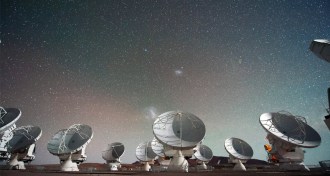 Astronomy
AstronomyA galaxy 11.3 billion light-years away appears filled with dark matter
The “Cosmic Seagull,” a distant galaxy magnified by a gravitational lens, seems chock-full of dark matter, in contrast with other galaxies almost as far away.
-
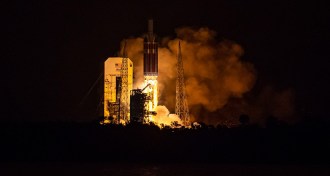 Astronomy
AstronomyThe Parker Solar Probe has launched and is on its way to explore the sun
The Parker Solar Probe just took off to become the first spacecraft to visit the sun.
-
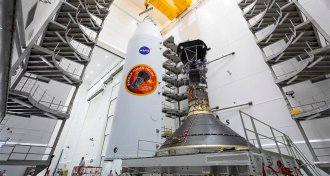 Astronomy
AstronomyWith launch looming, the Parker Solar Probe is ready for its star turn
The Parker Solar Probe is scheduled to launch on August 11 to become the first spacecraft to touch the sun.
By Lisa Grossman and Helen Thompson -
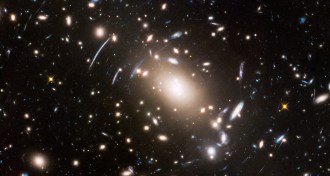 Astronomy
AstronomyA faint glow found between galaxies could be a beacon for dark matter
Intracluster light may help reveal where dark matter resides within galaxy clusters.
-
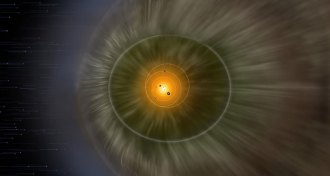 Astronomy
AstronomyNew Horizons may have seen a glow at the solar system’s edge
New Horizons may have seen a hydrogen wall just past the edge of the solar system, where the solar wind meets the stuff of interstellar space.
-
 Astronomy
AstronomyAstronomers saw the first mass eruption from a star that’s not the sun
The first coronal mass ejection observed fleeing another star was as massive as scientists expected, but carried less energy.
-
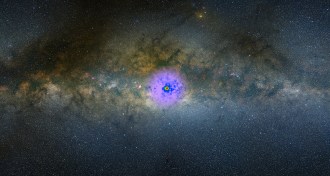 Astronomy
AstronomyHopes dim that gamma rays can reveal dark matter
A mysterious glow of gamma rays coming from the center of the Milky Way probably isn’t a sign of dark matter.
-
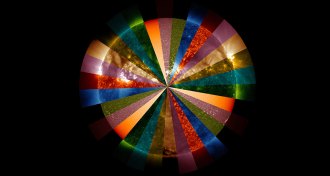 Astronomy
AstronomyNext to its solar twins, the sun stands out
Our sun has subtly different chemistry from its peers, which may help pinpoint stars with systems like our own.
-
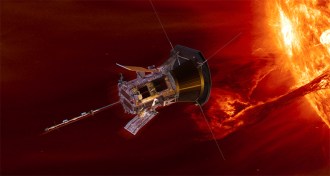 Astronomy
AstronomyHow the Parker probe was built to survive close encounters with the sun
Scientists had to get creative in testing the technology for the Parker Solar Probe, using huge mirrors, dust tunnels and even reams of paper.
-
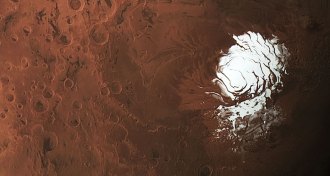 Planetary Science
Planetary ScienceWhat does Mars’ lake mean for the search for life on the Red Planet?
A lake spotted hiding under Martian ice could support life, but finding out if anything lives there could be challenging.
-
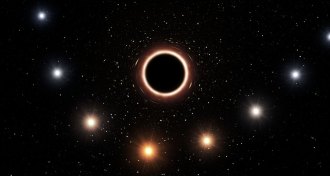 Physics
PhysicsA star orbiting a black hole shows Einstein got gravity right — again
For the first time, general relativity has been confirmed in the region near a supermassive black hole.
-
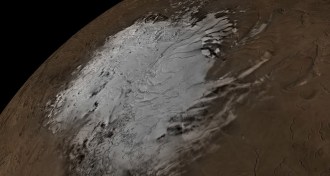 Planetary Science
Planetary ScienceMars (probably) has a lake of liquid water
A 15-year-old Mars orbiter has spotted signs of a salty lake beneath the Red Planet’s south polar ice sheets.